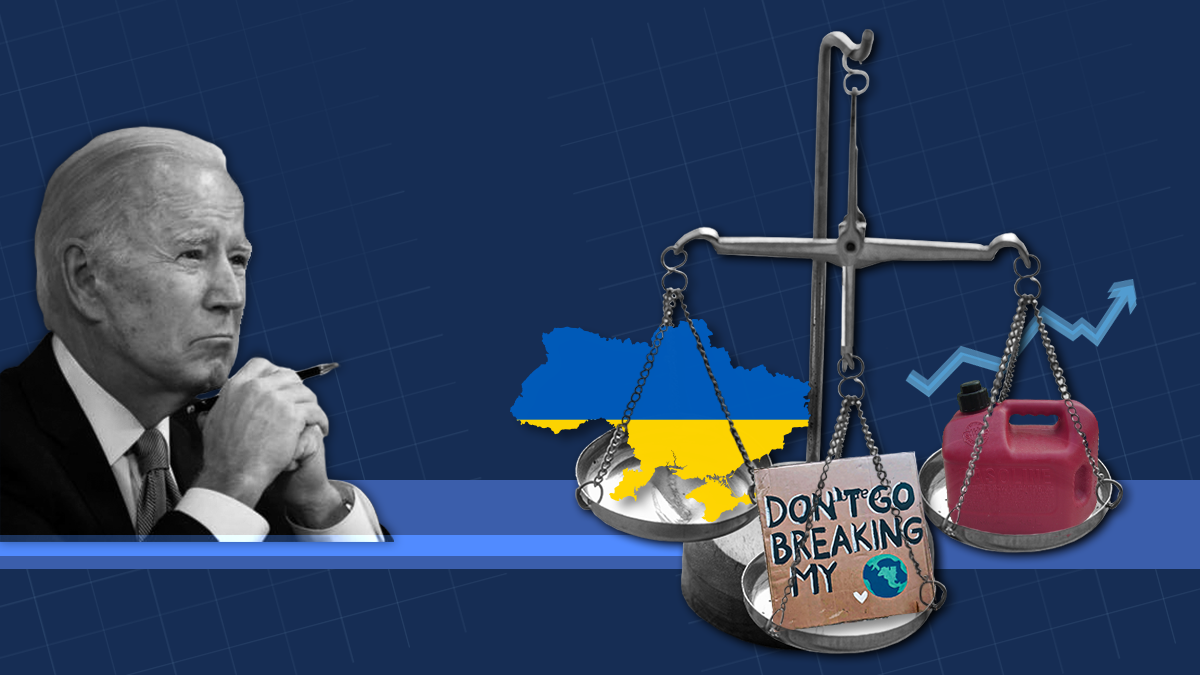Back in 2020, candidate Joe Biden vowed to be the greenest president in the history of the United States. This was not a nod to his political coming of age – the soon-to-be octogenarian has been around the block – but rather a reference to Biden’s super ambitious climate agenda.
Fast forward 15 months, and Biden, facing an unprecedented energy crisis, has been accused of doing an about-face on climate, veering into drill, baby, drill territory to encourage more oil production to boost dwindling global supplies.
Promises made, (some) promises kept. Focused on uniting a divided Democratic Party upon taking office, Biden vowed to go big on climate change mitigation. He followed through immediately with a series of executive orders, first rejoining the Paris Climate Accords ditched by his predecessor, realigning the US with nearly 200 countries that agreed to cooperate on keeping global warming levels below 2 degrees Celsius.
Biden also abandoned the Keystone XL Pipeline that would have pumped oil from Alberta, Canada, to the Texas Gulf. His friend next door, Canadian PM Justin Trudeau, had seen the writing on the wall but was still stung by the move. Importantly, the decision successfully appeased the left flank of the Democratic Party.
What’s more, while campaigning for the presidency, Biden said there would be “no more drilling” on public lands in a bid to curb fossil fuel extraction and achieve his goal of halving carbon emissions from 2005 levels by the end of the decade.
Enter Putin. Even before February 24, Biden was facing a series of political crises — COVID and the culture wars, inflation, immigration woes — that were hurting his poll numbers. But then Putin pummeled Ukraine, sending the global energy industry into a tailspin and further threatening Biden’s already-cratering credibility at home.
Biden has since tried to pin his inflationary woes on the Kremlin, using the pithy slogan “Putin’s Price Hike” to suggest that rising gas and food prices are an inevitable result of Russian aggression. But Americans remember that prices already started rising last year, so many aren’t buying it.
Desperate times. As oil and gas prices surged, an increasingly desperate Biden has appeared to flip-flop on some of his climate pledges. Crucially, his administration is opening up federal lands across nine states for oil and gas drilling, the first such move since Biden took office.
The embattled president is trying to show working-class Americans – whose support he is wooing ahead of crucial midterm elections in November – that he feels their economic pain. But for another core constituency – environmentalists, many of whom reluctantly backed him – Biden’s recent move is nothing short of a betrayal.
In a bid to placate the greenies’ grumblings, Biden has upped the royalties – from 12.5% to 18.75% – that energy companies must pay when drilling on these lands.
But this strategy could prove self-defeating, disincentivizing already-skeptical energy companies concerned about the costly investment and impact on market valuation from boosting production.
So will Biden’s ploy move the needle? Eurasia Group expert Shari Friedman says this was a political reaction more than an impactful one. It was “aimed at reducing anxiety and taking action in the face of rising gas prices,” she says.
“In reality, there is not much that the Biden administration can do to reduce domestic energy prices in the near term,” Friedman says.
It is one thing to sell leases, but getting an oil rig online takes a long time. “Developers already have vast reserves of both productive and currently undeveloped fossil-fuel leases, and any leases that occur today are unlikely to produce oil for many years,” says Max Sarinsky, a senior attorney at New York University’s Institute for Policy Integrity.
“There is considerable value in curtailing fossil-fuel leasing now and preserving the option to lease or not lease in the future,” he adds.
Complicating matters further is the fact that many of Biden’s climate policies are wrapped up in the Build Back Better Act, which is now dead in the water because of Democratic holdouts. Short of getting that passed – which looks like a pipe dream – Biden is going to struggle to make major investments in emission-reduction schemes anytime soon.
Meanwhile, the president is getting an earful from some Democrats and special interest groups that say he’s reneged on promises that helped secure their backing. But given the severity of the current energy crisis, was there another way?
“I don’t think this was necessarily inevitable from the start, but it is the logical outcome of where we find ourselves,” says Director of Eurasia Group's US desk, Clayton Allen, noting the benefit of hindsight.
But Allen also points out that Biden’s hands were largely tied because of a court order banning his administration from pausing the issuance of new permits for oil and gas leases on federal lands (the litigation is ongoing).*
Western responses to Russia’s aggression have also played a role. The West’s “willingness to respond strongly has expanded the dislocations to oil supply resulting from the war,” Allen says, adding that “markets face an increasing pinch the longer the war goes on.”
Politicians often go back on their word when faced with new realities. But for Biden, who heads an extremely unwieldy Democratic Party, the main problem is that the people he needs on his side want very different things.
* This story was updated on April 29, 2022.
